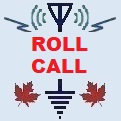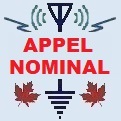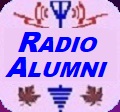| |
| |
 |
Eddie J. Haughton
|
 |
|
| |
1937
E.J. HAUGHTON retires
From Jack Bowerman's scrap book and
clippings, thanks to Ian Haynes and
Frank Staham
E.J. Haughton relates history of Service on West Coast
by Don Mason
The Graveyard of the Pacific -- bleak West Coast of Vancouver Island -- is a
ship's graveyard no longer. It's been a long time since major wreck occurred on
those rocky shores.
Government radio service on the British Columbia Coast has changed things.
Monday -- the day of his retirement -- E.J. (Eddie) Haughton, district
superintendent, Canadian Government Radio, looked back over a half century of
telegraph and radio service and was pleased with what he found.
He should be pleased.
Mr. Haughton, aided by a far seeing Government, is responsible for the splendid
system of radio aids to navigation on this coast, unsurpassed anywhere in the
world
" I have see every development in radio. If I have been of service in this age
of radio,. I am more that satisfied, " he said.
Mr. Haughton joined the Canadian Pacific Telegraph in 1888, when radio was
unknown, He served 17 years as operator and chief operator.
In 1907, the government built the wireless plant on Gonzales Hill and Haughton
was its first operator.
" We had only a few condensers and a spark plug," he recalled. " The building
was unfinished and we had to make our own power to operate the radio. The only
operator, I, worked 18 hours.
" My first SOS came from the steamer "Humboldt" ashore in Active Pass."
" Few ships had wireless then, but Alex McDermott of Victoria and Vancouver
Stevedoring Co. had a summer camp at Foul Bay and we had a system by which I
kept him in touch with ship movements.
" I would sight a ship he expected, megaphoned to him, and he would have his men
ready to work when the vessel docked "
When the government established its wireless station at Gonzales, there was
competition from the Pacific Wireless Company station on Douglas Hill. It went
out of business in 1908.
" In 1923, we changed from sparks to valve transmission." Mr. Haughton said. "
The same year broadcasting came in.
" It made us dizzy, and we have stayed that way.
" The air is cluttered up with networks, short wave, amateur, police, ordinary,
local and provincial forestry aids and others. Something will have to be done
about it soon, " he said.
Radio beacons and radio phone are two major developments in recent years which
have greatly aided in making this coast safe for navigation. The first beacon
was established at Race Rocks eight years ago, and many other have come into
being since.
" Canada has always been in the forefront of radio development," said Mr.
Haughton. " It has always been the policy to keep both coasts equipped with the
most modern radio aids to navigation.
" Apart from the use to shipping people, many a wreck has been averted by radio
on this coast, " Mr. Haughton declared.
|




